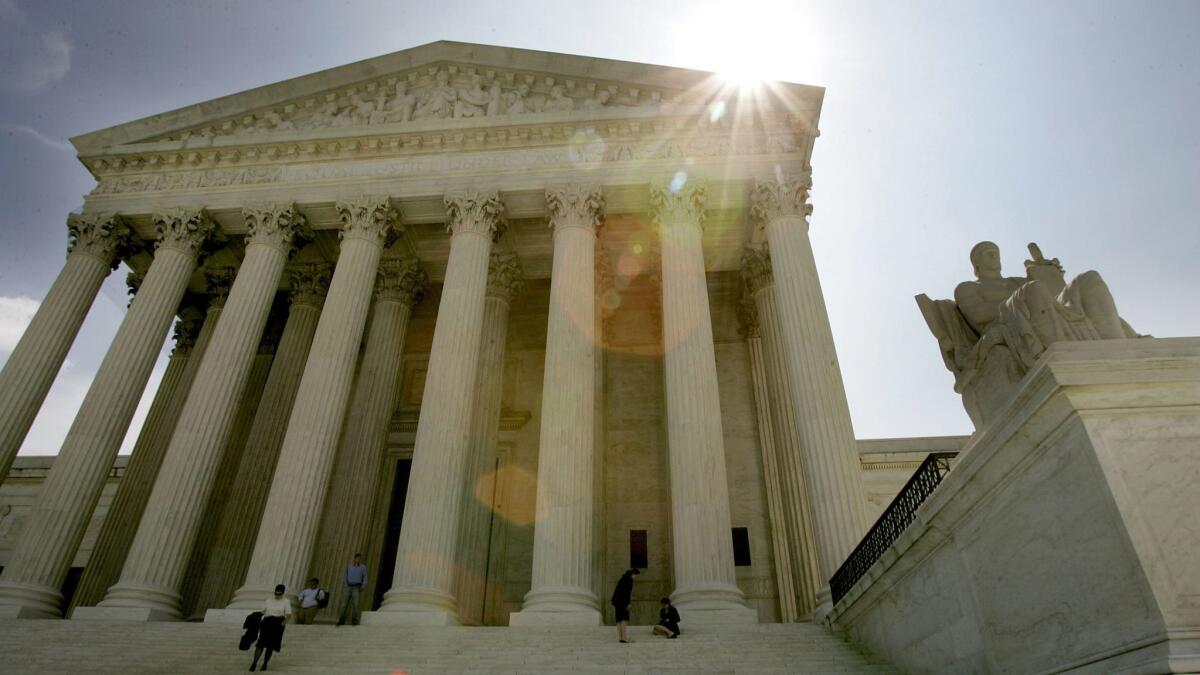Indiana to ask Supreme Court to hear abortion case

- Share via
Reporting from Washington — The state of Indiana is planning to ask the Supreme Court to settle an abortion dispute involving a state law that could reopen the debate over Roe vs. Wade in the upcoming term.
The state said recently in court filings that it will ask the justices to consider whether a woman can be prohibited from getting an abortion because of the race, gender or health of the fetus.
The Indiana law, signed by Vice President Mike Pence when he was governor, had been struck down by the lower courts because it ran afoul of Supreme Court decisions that say states cannot prohibit abortion before a fetus is viable outside the womb.
It is far from certain whether the justices would agree to hear the case. But if they do, it would probably be just months after Supreme Court nominee Brett M. Kavanaugh is confirmed to the court. His nomination is embroiled in controversy over allegations of sexual assault decades ago. Kavanaugh has denied the allegations.
Kavanaugh’s opponents predict he will serve as the fifth conservative justice to overturn or undermine the Roe decision. Several conservative states, with the support of anti-abortion groups, have brought legal cases that might make it easier to place restrictions on the procedure.
Because the Indiana law directly contradicts Roe, even accepting the case may suggest that justices are considering a change to the Roe precedent.
“It would be surprising for the court to take the case,” said Andrew Beck, a senior staff attorney at the ACLU working on the case for Planned Parenthood of Indiana and Kentucky. The Indiana prohibition violates law “that’s been the law for decades.”
That said, “it’s always worrisome, the prospect of the Supreme Court taking a case given that we know that the right to abortion is under attack,” he said.
Indiana last week told the high court that the state plans to appeal the lower court’s decision while asking for additional time to file its petition.
The court only agrees to hear a case when four justices vote to do so. There is no split in the lower courts on the issue, which is often a factor in determining whether a case makes it to the high court.
More to Read
Get the L.A. Times Politics newsletter
Deeply reported insights into legislation, politics and policy from Sacramento, Washington and beyond. In your inbox three times per week.
You may occasionally receive promotional content from the Los Angeles Times.











